We have experienced first-hand the experience of managing the Schengen visabeing Venezuelans outside our country of origin.
We know what those who want to visit Europe, whether for tourism, studies, temporary work or family, go through without the right guide.
That's why we want to share our knowledge to help you understand what is the Schengen visawho needs it and how to apply for it in a clear and practical way.
What is the Schengen visa?
The Schengen visa is an official permit issued by any of the countries that make up the European Union.l Schengen AreaThe EU is a territory where internal border controls have been abolished, allowing the free movement of persons between its member states.
We, since we have been living outside of our beloved VenezuelaWe realised that this is not a national visabut of a regional paper that allows us to transit through various nations without the need for multiple applications.
The Schengen area includes countries such as France, Germany, Italy, Spainwhere we currently reside, among many others.
Once you get the Schengen visaYou can travel between these countries without border controls, which is a huge advantage for those of us who live abroad and want to get to know the country. European continent at liberty.
Who needs a Schengen visa?
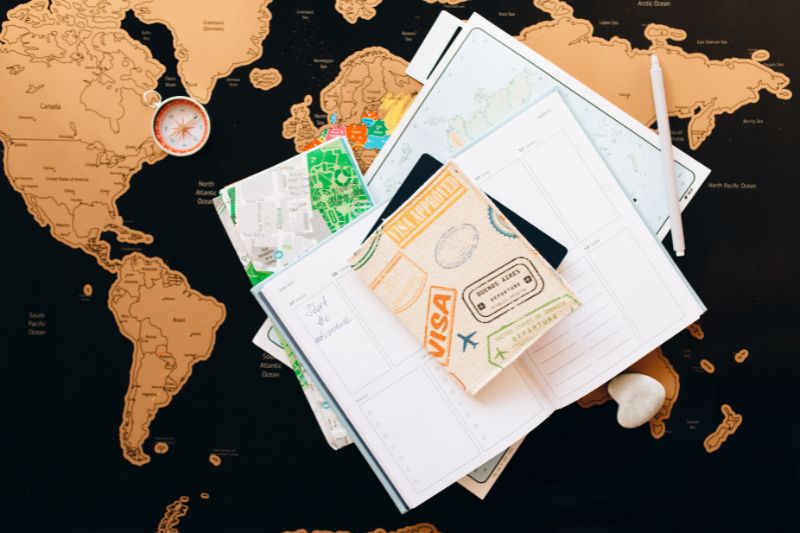
Like Venezuelans who live outside the Venezuelawe recognise ourselves as national of a country whose citizenship is not exempt to apply for the Schengen visa if our stay is of short duration (maximum up to 90 days within a period of 180 days) either by tourism, family visit, business or transit.
On the other hand, there are specific circumstances:
- If we already have a legal residence in a country in the Schengen AreaOften we do not require a additional Schengen visa. We ourselves, before we obtained our residency, did need it.
- Also exempt are holders of certain documents, such as EU resident cards or long-stay visas, issued by Schengen countries or associated, but these cases are different and less common for the majority of the Venezuelans without residence.
Therefore, in general, anyone who is not a citizen of the EU or of the Schengen Area and plans to travel to 90 daysincluding in transit, you must apply for a Schengen visa.
Types of Schengen visas and which one is best suited to your situation
There are several types of Schengen visaThe most frequent are:
- Short-stay Schengen visa (type C)for tourism, business, visits to relatives or transit.
- National / Long-stay visa (type D): awarded by a Member Stateallows stays of up to longer than 90 days. If we apply for studies, work or family reunification, we turn to this type.
Our recommendation is that, for holidays or short breaks, you should opt for the type C. However, if we are going to reside longer for work or academic reasons, the type D is the right one.
Documents required to apply for a Schengen visa
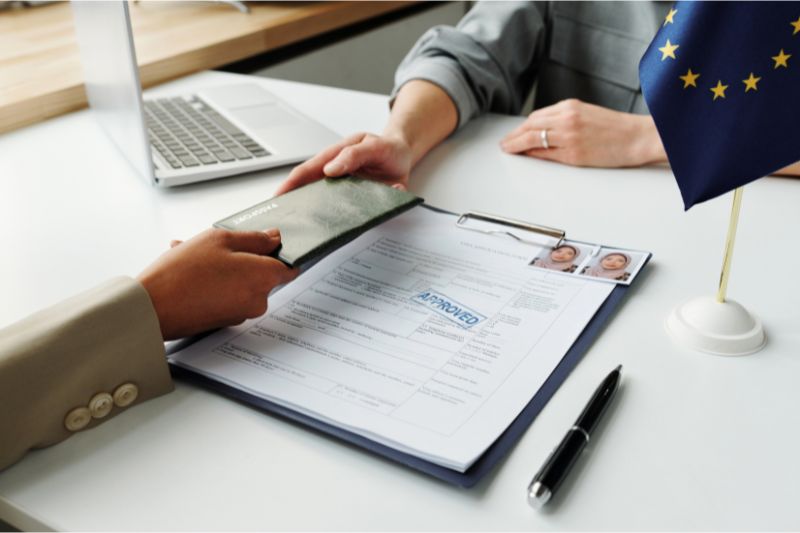
We know that one of the most common causes for refusal is the incomplete documentation o incorrect. The following is a list of what is normally required for the short-stay Schengen visa:
- Application formduly completed and signed.
- Valid passportThe document is usually at least two pages long and must be valid for at least three months beyond the intended date of departure.
- Recent photographsID card type with a light background, according to biometric requirements.
- Schengen travel insuranceminimum cover of €30,000, valid throughout the EU. Schengen areacovering repatriation and medical care.
- Itinerary or ticketsReturn trip, or proof of availability.
- Booking of accommodation: hotels or letter of invitation if you are going to see family or friends.
- Sufficient financial meansbank statements, cards, employment letter or stable income. We prepare a summary of our financial situation.
- Letter of motivation or invitationexplaining purpose, duration and plans, clearly worded.
- Consular feesusually paid in local currency.
On specific occasions, proof of vLinks with Venezuela or other country of current residence, to demonstrate intention to return.
Steps to apply for a Schengen visa

Below, we share a step-by-step guide to applying for a visa:
- Determining the right Schengen countryWhen we plan to visit several countries, we usually apply for the Schengen visa at the embassy or consulate of the country, which will be our main destination (the one where we stay the most days), or if the days are the same, the one where we enter first.
- Make an appointmentMost consulates require an appointment in advance. Ideally, you should use the official online systems or centres such as VFS Global (depending on the country) to book in advance.
- Gathering documentsfollowing the list above, taking care of all the details and formatting required.
- Appointment dayCome punctually, with all documents in an organised folder. As a tip, make sure you dress presentably and respond clearly in case of a short interview.
- Payment of feesThe payment is made in cash or by credit card, as indicated. It is important to keep the receipt.
- Follow-upResponse times are usually 15 days (although they vary). Check the status online or contact the management centre if there are delays, taking care not to exceed the formal channels.
- Resultif the Schengen visaIn case of refusal, dates, number of entries (single or multiple) and validity must be checked immediately. In case of refusal, a brief explanation is given, but there is an option to appeal according to lNational Schengen legislation.
Common mistakes and how to avoid them
Based on experiences and feedback from others VenezuelansThese errors are often decisive:
- Inconsistent documentation (misaligned dates and destinations).
- Insufficient or inadequate travel insurance cover.
- Passport with very little validity.
- Submit scanned documents or poor quality photos.
- Failure to sufficiently justify financial means or roots.
To avoid this, we check each sheet before submitting it and ask for second opinions from colleagues who have already managed their Schengen visa.
Specific advice from our perspective
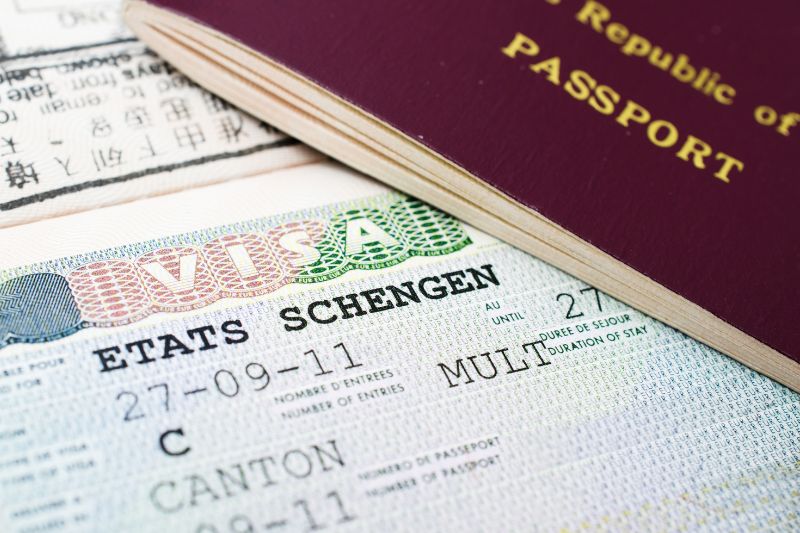
As Venezuelans outside our country, we face unique challenges:
- Validate documentsoften require apostille o translate Venezuelan documents. Ideally, it is best to contact the official services and sworn translators.
- Financial meansif we are unable to generate income in the country where we reside, we use bank statements of family members o formal financial backing, together with the explanatory note.
- Invitation letter: yes visiting relativesThe invitation must be accompanied by valid identification documents of the host within the period of validity of the invitation. Schengen area and a signed commitment.
- Current length of residencesome people have only been living outside the country for a short period of time VenezuelaIf you have a recent history, we recommend demonstrating recent history with contracts, records or explanatory notes.
In addition, there is often a justification of stay ,such as reservations with free cancellation, for mo show flexibility.
It is also advisable to travel outside the peak period (European school holidays), which helps with timing and attention.
Special cases: transit, studies and work
- Transitif we only make a stopover in a Schengen country and we don't get out of the airportwe may need a Schengen transit visa (type A). It is necessary to check in advance whether this is strictly obligatory, as in some cases the stopover at the airport, as is the case with Amsterdam, did not require a visa, but at other airports it did.
- Studies or workfor stays or internships, it is necessary to arrange for a long-stay Schengen visa (type D) with the relevant embassy. The process involves more documentationas registration, employment contractl o official invitation and longer terms, but it provides a solid basis for obtaining residence thereafter.
After obtaining a Schengen visa: practical recommendations
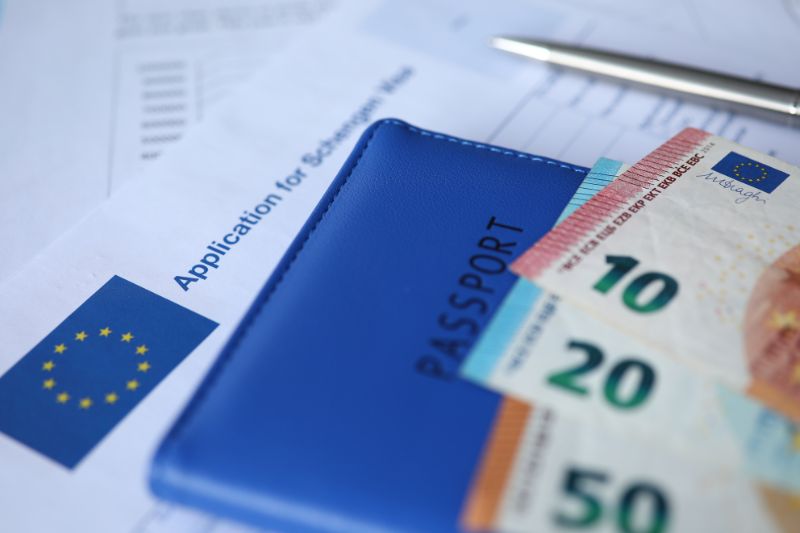
Once the Schengen visa, it is not enough to relax. You have to:
- Sticking to the established dates and conditions, exceeding the visa may result in fines, deportation or a ban on future entry.
- Save cpassport opias with the visa and insurance during the trip.
- If a change arises (flight delays, quarantine), notify the embassy from Schengen country o consulate fund if necessary.
- Respect local regulationsas sharing temporary accommodation may require notifying authorities (especially in Germany o France).
Our vision as Venezuelans
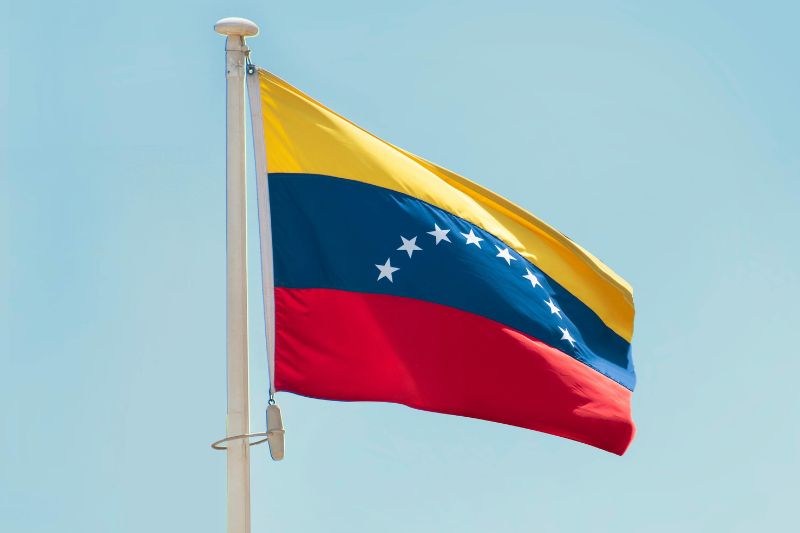
In short, the Schengen visa opens the door to Europe for us, the Venezuelans expatriates that we wish to maintaining family, professional or cultural ties with the continent.
Knowing what it is, who needs it and how to apply for it is crucial to avoid frustration.
At Curiara, we believe in the power of clear and honest information to empower our migrant community.
We hope that this article will serve as a practical guide for those who are in a similar situation, living outside Venezuela, eager to discover Europe and willing to do the procedure with confidence.
Have a nice trip and success with your Schengen visa application!
